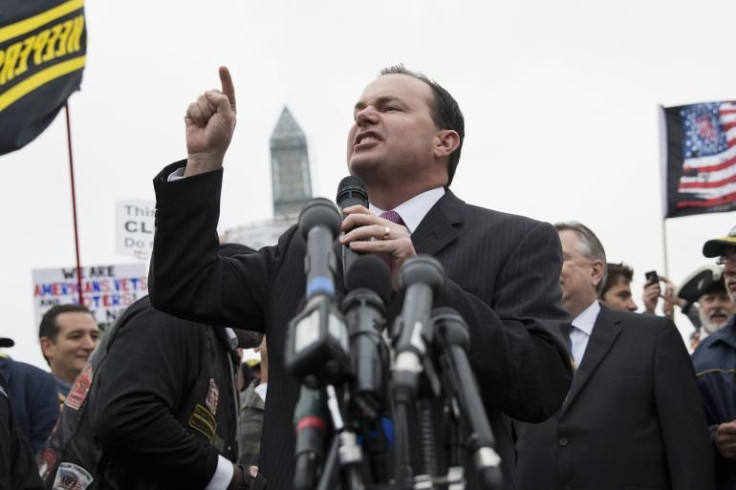Comcast-TWC Merger Makes Some Conservatives Nervous: Tea Party’s Mike Lee, PTC Among Those Voicing Concerns

Apparently, economic Darwinism is still an evolving concept.
Conservatives are typically in favor of letting the free market decide which companies grow and which get ground into dust, but the proposed merger between Comcast Corporation (NASDAQ:CMCSA) and Time Warner Cable Inc. (NYSE:TWC) has some Republicans worried that a bigger and more powerful pay-TV giant wouldn’t necessarily be in their best interests. Delivering his opening remarks at a Senate Judiciary Committee hearing on Wednesday, Republican Sen. Mike Lee of Utah expressed deep reservations about the “extremely large transaction,” which he said is complicated by Comcast’s ownership of NBCUniversal. That ownership, Lee said, may give Comcast an incentive to discriminate against right-leaning political speech in lieu of left-wing offerings at the Peacock Network.
“Considering the significant share of the video and Internet market that the new Comcast would have, and considering the well-known political leanings of NBC, I’ve heard concerns that Comcast might have the incentive and the ability to discriminate against certain political content, including, for example, conservative political content,” Lee said. “And that capacity could be significantly enhanced as a result of this transaction.”
The statement, ironically enough, comes two days after Lee, a leader in the Tea Party movement, urged the Republican Party to advocate for free-market reforms in an article for the National Review. “Policy privilege corrupts the free market by rewarding political connections over competitive excellence,” he wrote.
Lee isn’t the only conservative worried about a deal that would combine the nation’s largest and second largest pay-TV providers. The culture warriors behind the Parents Television Council, the conservative media watchdog dedicated to scrubbing all television shows of curse words and nudity, came out against the merger as well, calling it “bad for families.” In a statement, the group’s president, Tim Winter, said the merged entity would be an anti-consumer behemoth with near-unstoppable market power. “Bigger doesn’t mean better, particularly where consumers and families are concerned,” Winter said.
The PTC has long advocated for the concept of unbundled cable programming, a pricing structure that would allow consumers to choose their cable networks on an à la carte basis. Cable companies, and many analysts, say such a structure would undermine the pay-TV model as we know it, pushing prices for popular channels like ESPN through the roof while condemning smaller networks to near-oblivion. The PTC, however, argues that family-conscious consumers shouldn’t be forced to effectively subsidize offensive channels like MTV that air content the PTC finds objectionable. Indeed, PTC's objection to the Comcast-TWC merger seems to reflect that agenda. Winter said unbundled programing “must be a stipulation for regulatory approval” of the merger. However, such a stipulation is unlikely seeing how cable providers benefit from the bundled status quo.
The right is not unanimously opposed to the merger. On Monday, a coalition of conservatives and free-market advocates, including Grover Norquist, wrote a letter urging the Senate Judiciary Committee to allow the two “commercial enterprises” to arrange themselves as they see fit. “Our judgment [is] that the proposed combination of Comcast and Time Warner Cable poses no harm to consumers or any worrisome accumulation of market power,” the coalition wrote.
Got a news tip? Email me. Follow me on Twitter @christopherzara.
© Copyright IBTimes 2024. All rights reserved.












